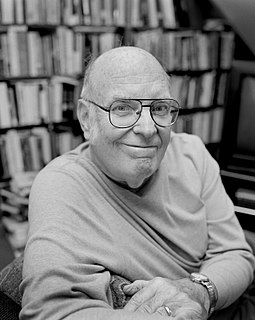A Quote by Edward Hirsch
She [Carol Parsinan] somehow read my poems and came back to me and convinced me that I could be a poet, that I had the passion and the enthusiasm and the creativity to become a poet, but that what I was writing was not poetry because I was just expressing my feelings and I wasn't try to make anything.
Related Quotes
There is this tendency to think that if you could only find the magic way, then you could become a poet. "Tell me how to become a poet. Tell me what to do." . . . What makes you a poet is a gift for language, an ability to see into the heart of things, and an ability to deal with important unconscious material. When all these things come together, you're a poet. But there isn't one little gimmick that makes you a poet. There isn't any formula for it.
I wrote poetry for seven or eight years, maybe longer, before I could say I was a poet. If people asked, I'd say I wrote poetry; I wouldn't go further. I was in my mid- to late-thirties before I felt that I was a poet, which I think meant that I had begun to embody my poems in some way. I wasn't just a writer of them. Hard to say what, as a poet, my place in the world is. Some place probably between recognition and neglect.
A trouble with poetry is the presence of presumptuousness in poetry, the sense you get in a poem that the poet takes for granted an interest on the reader's part in the poet's autobiographical life, in the poet's memories, problems, difficulties and even minor perceptions. I try to presume that no one is interested in me. And I think experience bears that out. No one's interested in the experiences of a stranger - let's put it that way. And then you have difficulty combined with presumptuousness, which is the most dire trouble with poetry.
I became a poet in Pittsburgh. When I lived in the South, I was a basketball player and primarily a jock. An English teacher essentially suggested that I send the poems that I'd been writing - really just for him - to a few programs, so that when I wound up in Pittsburgh, it's where I figured out that I could actually be a poet.
One of the appeals of William Carlos Williams to me is that he was many different kinds of poet. He tried out many different forms in his own way of, more or less, formlessness. He was also a poet who could be - he was a love poet, he was a poet of the natural order and he was also a political poet.
Poetry is probably the one field of writing in which it is a mistake to try to psych out editors. In fact, specific marketing advice can sometimes harm the novice poet by enticing him to pursue fashions. The poet's best hope is to sound like nobody else, The finest, most enduring poetry constructs a marketplace of its own.



































